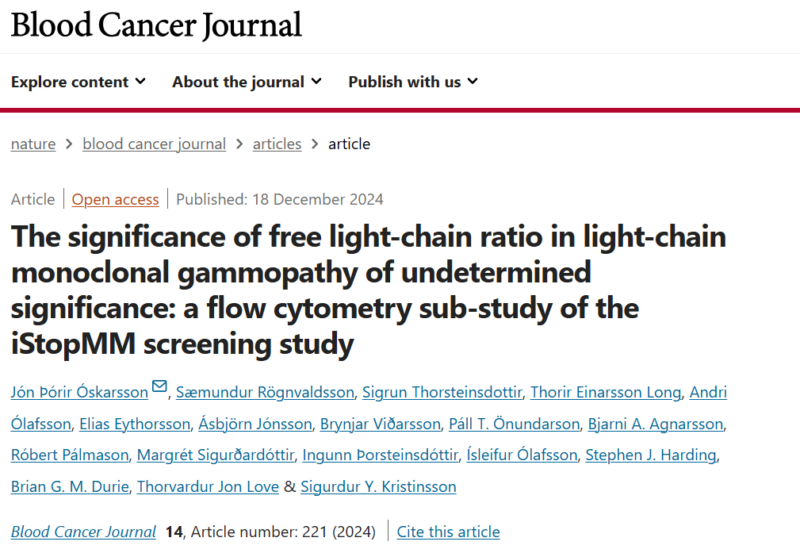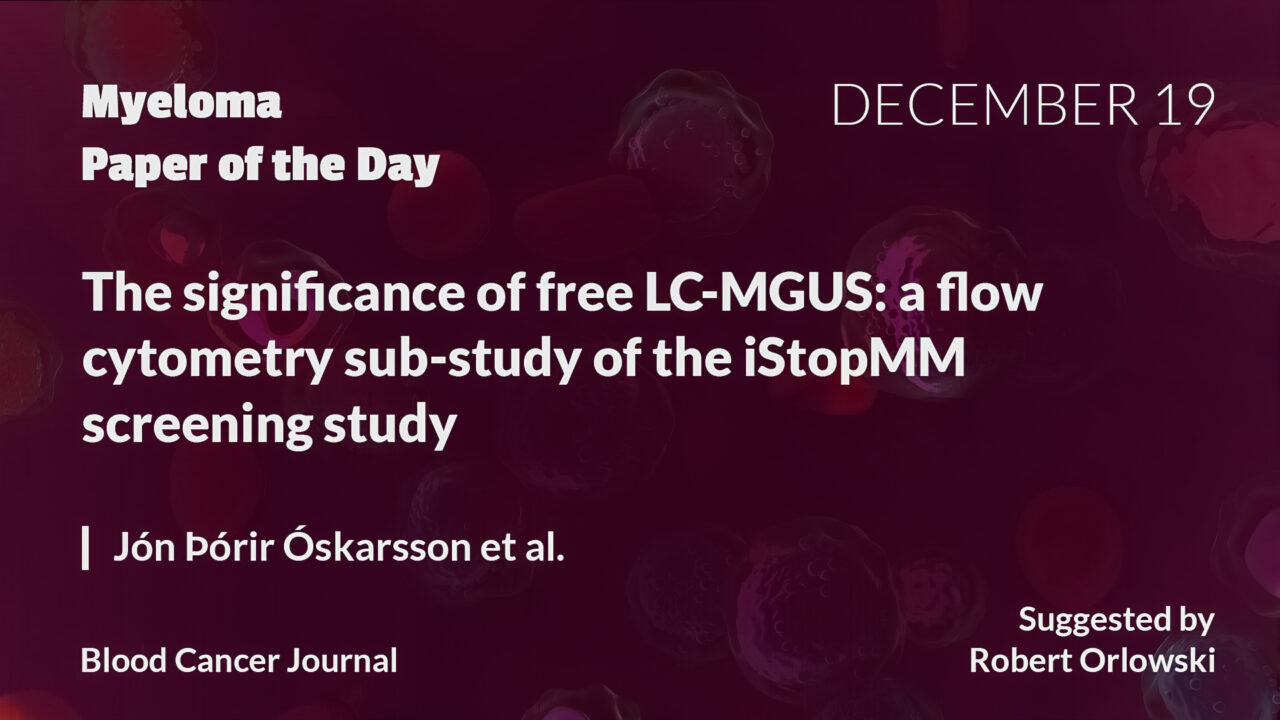Robert Orlowski shared a post on X:
“Myeloma Paper of the Day: Flow cytometry sub-study of iStopMM trial finds FLC ratio predictive of clonal PC presence in marrow for kappa-involved FLC ratios with optimal cutoff of 3.15; may better identify those at risk of symptomatic PC disorders.”
Authors: Jón Þórir Óskarsson, Sæmundur Rögnvaldsson, Sigrun Thorsteinsdottir, Thorir Einarsson Long, Andri Ólafsson, Elias Eythorsson, Ásbjörn Jónsson, Brynjar Viðarsson, Páll T. Önundarson, Bjarni A. Agnarsson, Róbert Pálmason, Margrét Sigurðardóttir, Ingunn Þorsteinsdóttir, Ísleifur Ólafsson, Stephen J. Harding, Brian G. M. Durie, Thorvardur Jon Love and Sigurdur Y. Kristinsson.

More posts featuring Robert Orlowski.
Robert Orlowski, M.D., Ph.D., holds multiple positions at The University of Texas MD Anderson Cancer Center, including Chairman, Ad Interim Director of Myeloma, and Professor of Medicine in the Departments of Lymphoma/Myeloma and Experimental Therapeutics within the Division of Cancer Medicine.
Additionally, he chairs the SWOG Barlogie/Salmon Myeloma Committee, which is part of the National Clinical Trials Network, dedicated to advancing new therapies and understanding the biology of myeloma.
Dr. Orlowski’s expertise lies in both clinical practice and scientific research, with a particular focus on translating laboratory discoveries into effective treatments for patients. He investigates drug resistance mechanisms in myeloma and seeks to identify predictive biomarkers for treatment response.
Notably, his past contributions include leadership roles in developing proteasome inhibitors like bortezomib and carfilzomib, as well as monoclonal antibodies such as daratumumab and elotuzumab.


